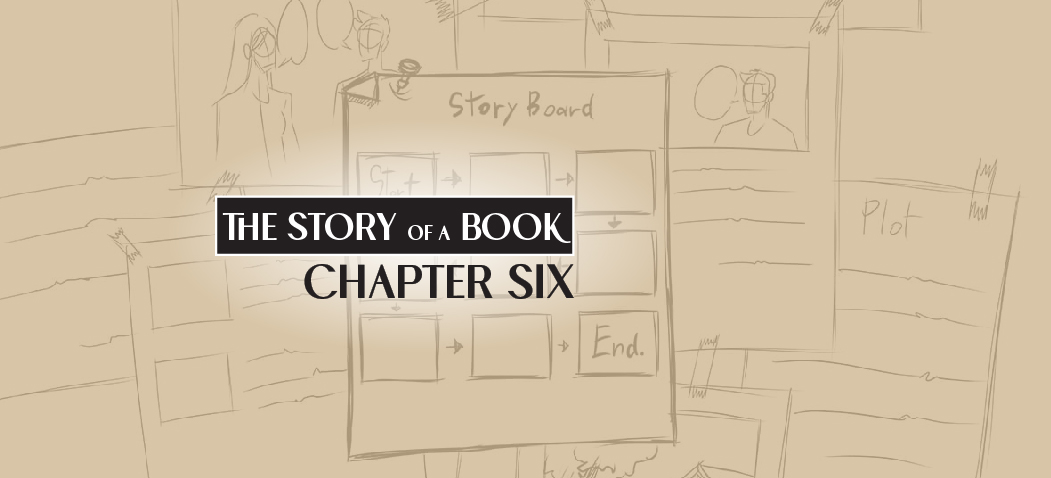The Bomber Jacket from First Page to Finally, Published!
Storyboarding – A Functional Framework for Fiction
The most helpful tool I gleaned from The Weekend Novelist by Robert J. Ray, the guidebook I used to craft The Bomber Jacket, is storyboarding. It’s a list of what your scene will contain: setting, who’s “on stage”/their relationships, dialogue, action, point of view, climax, and exit line.
I found that storyboarding helped me dive into my scenes with a vivid picture already painted on my mental canvas. That functional framework allowed writing to flow much more freely because I didn’t have to stop in the middle of a sentence and ask myself, “Wait, is it raining?” or “Who else in in the room with them?” or “What’s she wearing?” Storyboarding enabled me to “put my characters on stage” and let the characters to take it from there.
Here is the “stage setup” segment from my storyboard for the scene in Chapter Two where Beth first meets Robbie on the train from London to Edinburgh:
- time/place: midweek, mid-May, late morning; train compartment (non-reserved)
- temperature/season: Spring/damp chilly day in low 60s, an “England day”, damp cool with “showery rain” that is sometimes misty, sometimes heavy; it falls against the window in long rivulets that are whipped thin by the speed of the train
- light: the light is gray, overcast, misty; the train compartment is filled with low, diffuse light. Beth sits by the window and there is enough light to read, but the light is dim
- sounds: occasional sound of train whistle, sound of train wheels on track (kathuk-kathuk-kathuk-kathuk), a lulling, soothing sound, hypnotizing; rattling of train cars; call of conductor as he walks through passageway along the compartments; conversation of other passengers, three women in their 50s traveling to Northern Scotland to see family; rustle of Beth’s book as she turns the pages; sound of Robbie opening the compartment door and settling into the window seat across from Beth
- smells: vague oil/mechanical smell; diesel fuel; damp clothing, musty, enclosed space; flowery perfume of one of women; leather of seats

And here how it appears in the chapter:
The view out the window caught her eye, and she watched the landscape gradually change from city to suburbs to countryside. The gently rocking motion of the coach, the rhythmic thunk of the wheels, and the warmth of her leather coat began to lull her into a hypnotized state. Her journal and tour book lay ignored on her lap.
Less than an hour outbound, the sunny London morning faded into a dank, cold English winter day laden with rain. She watched the drops on the window being stretched into long thin rivulets by the speed of the train. The stormy day filled the compartment with a low diffuse light that made reading possible but created a sense of muted isolation. The man next to her and the woman in the other window seat were silently absorbed in their newspapers.
Beth inconspicuously eyed the three Scottish women. Their low-spoken, lighthearted chatter about who was meeting them at the train station filled her with a piercing homesickness, recalling the forsaken look on her grandfather’s face as she left him at the airport.
I have no one to greet me in Edinburgh. No one to even know if I do arrive.
The smell of leather seats, damp clothing, flowery perfume, and a vague mechanical odor that Beth associated with trains permeated the enclosed compartment, giving it a musty heaviness. Occasionally a welcome rush of fresh air blew in as her fellow passengers came and went at stops or made a trip to the Water Closet, or WC as it said on the door, which Beth thought was an amusing name for a bathroom.
The action section of the storyboard reads:
- large action: Robbie coming into the compartment; train hurtling toward Scotland; Robbie’s attempts to attract Beth’s attention (getting up and down to hang up coat, retrieve briefcase)
- small action: focus on her guidebook; his accidental spilling of briefcase contents on her lap; amused attention of other passengers, who smile and wink at him in silent encouragement
The details aren’t many, but they provide the general outline of what happens outside of Beth’s thoughts and within the setting of the scene:
Beth heard a muttered oath and felt a sudden cloudburst of papers come raining down on her head and lap. She jerked, as if someone had touched her with a live wire. Looking up, she saw the young man with the tweed hat standing over her, holding an open leather briefcase. He had an apologetic smile on his face.
“Oh, aye, I’m so sorry, I’m a bumbling idgit.”
The mild Scottish burr in his voice threw her mind into chaos. It was the same accent as the bomber pilot. She blinked, struggled to remember where she was. A train. Bound for Scotland. She looked back out the window. Not dawn. Late afternoon. Rain. Rolling hills. She looked over at the two women passengers. They were watching with amusement.
“I really am a clumsy bamstick.”
“A what?”
“Oh, sorry. When I’m a bit befuddled I forget myself and slip into Scots.”
She stared up at him. His accent was decidedly less Scottish now.
“Oh, bamstick. It’s my grandmother’s favorite word. It means a stupid, foolish person.”
“Bamstick.” She said it softly, letting the sound of it roll off her tongue.
The man flung his briefcase on the empty seat beside him. Startled, Beth slammed her hands on the papers, pressing them to her thighs as he leaned forward, hands extended. The man slowly sat back and gripped the armrests, his face now arranged in a carefully neutral expression.
“Sorry, sorry,” he said and flung up his hands in a gesture of surrender.
Beth felt the blush rise from deep within her. She looked back down at the papers on her lap and noticed neat, handwritten notes on yellow legal-size tablet paper and photocopies of what appeared to be old documents.
Though it’s a lot of work, I find storyboarding another kind of “filling the well” activity. By frontloading my conscious and subconscious mind with details of the scene, action and dialogue when I sit in front of the computer and begin to write…the story flows almost effortlessly.







